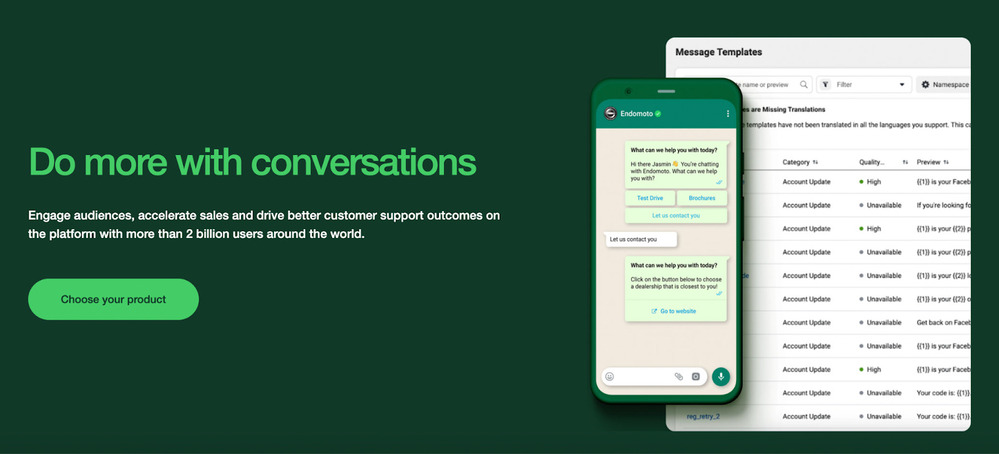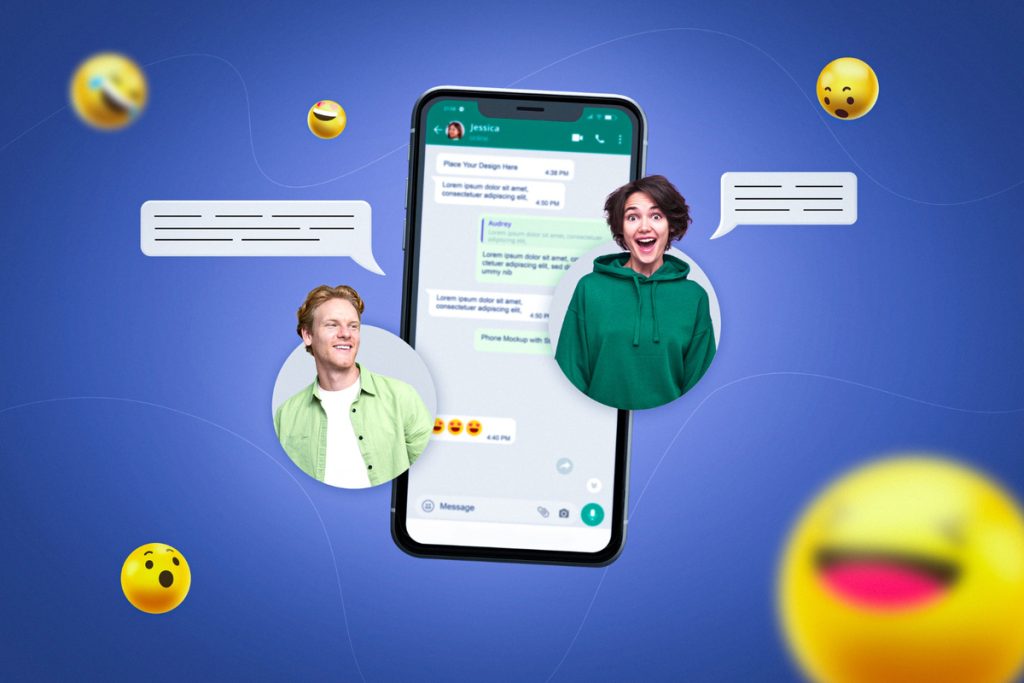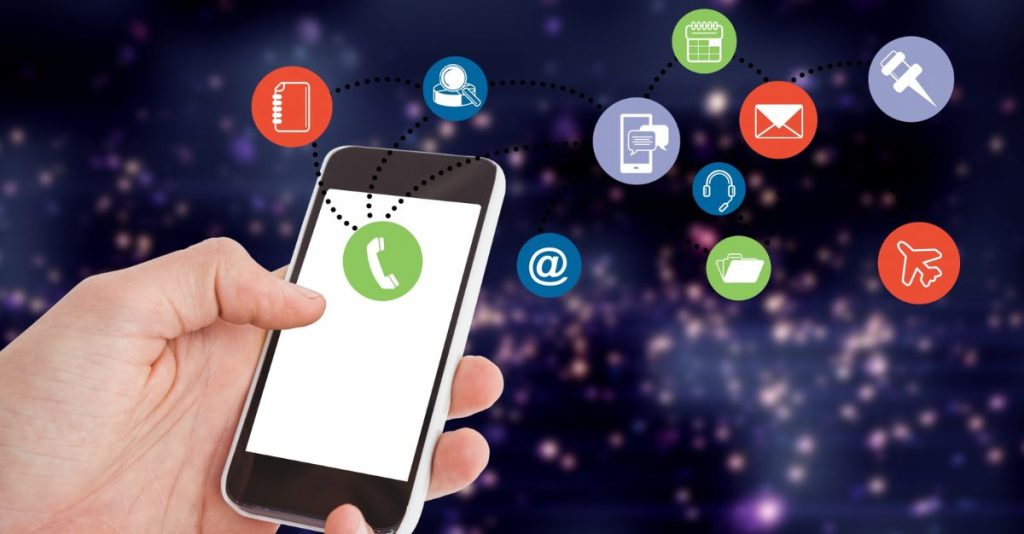WhatsApp’s ubiquity across diverse demographics globally, with an average of 35 minutes spent on messaging each day, and its evolution from a personal messaging app to a robust business platform, make it a potent tool for businesses to connect directly with customers. Businesses can leverage WhatsApp for marketing campaigns, customer support, and sales through real-time, personalised communication channels, highlighting its effectiveness in engaging customers directly.
Remarketing tools such as SMS, email, and social media platforms play crucial roles in modern marketing, facilitating targeted communication and customer engagement alongside WhatsApp. This article explores why WhatsApp Business stands out among these tools in terms of effectiveness, reach, and user engagement.

The Evolution of Communication Tools in Marketing
Early Methods
Traditional methods like SMS and email initially revolutionised direct customer communication in marketing. SMS provides instant delivery and high open rates, making it suitable for time-sensitive promotions and alerts. Email, with its capacity for detailed content and broad reach, became integral for newsletters and personalised marketing messages.
Rise of Instant Messaging Apps
The advent of instant messaging apps like WhatsApp marked a shift towards real-time engagement in marketing. These platforms offered businesses the ability to interact directly with customers, fostering immediate responses and personalised interactions beyond what SMS and email could achieve.
Emergence of WhatsApp as a Marketing Platform
WhatsApp’s adaptation into a business-friendly platform introduced features such as business profiles, messaging automation, and customer service tools. These advancements enable businesses to conduct targeted marketing, automate routine tasks, and provide efficient customer support, thereby enhancing overall customer experience and satisfaction.
Advantages of WhatsApp Over SMS
| Feature | WhatsApp Business | SMS |
| Engagement and Media Support | Supports multimedia (images, videos, and audio) for richer content and higher engagement | Limited to text-only messages |
| Cost | Lower cost (internet-based) | Higher cost (carrier charges) |
| Message Length | Up to 65,536 characters | Up to 160 characters |
| Delivery Confirmation | Yes | Yes |
| Global Reach | High | High |
| Encryption | End-to-end encryption for secure communication | Lacks encryption, leaving messages vulnerable to interception and compromising user data security |
Comparison of WhatsApp Business with Other Remarketing Tools
Email Marketing
Email marketing excels in delivering detailed content and reaching broad audiences. It allows businesses to provide in-depth information, such as newsletters, product updates, and promotions, to a large number of recipients. However, email marketing faces challenges such as lower open rates and potential spam filtering. Many emails end up in spam folders or are ignored by recipients, reducing their effectiveness.
WhatsApp Business surpasses email by offering higher engagement through instant delivery and personalised interactions. Messages on WhatsApp are more likely to be seen and responded to quickly, enhancing customer relationship management and support. The app’s real-time communication capabilities allow businesses to interact with customers more dynamically and personally.
Google Ads Remarketing
Google Ads allows precise targeting, offering businesses the ability to reach specific demographics based on search behaviour and web activity. This targeted approach can lead to higher conversion rates. However, Google Ads can be costly and may suffer from ad blindness, where users ignore banner ads and sponsored content due to overexposure.
In comparison, WhatsApp Business’ cost-effective, interactive features through direct messaging and multimedia content offer businesses a more engaging platform for driving conversions and enhancing customer loyalty. The ability to send personalised messages, images, and videos directly to customers makes WhatsApp a powerful tool for maintaining customer interest and encouraging purchases.
Social Media Remarketing
Social media platforms such as Facebook (Meta) and Instagram provide extensive reach and visual content capabilities. They enable businesses to connect with a wide audience through engaging posts, ads, and multimedia content. However, social media marketing is susceptible to ad fatigue and algorithm dependency. Users often become overwhelmed by the sheer volume of ads, and changes in platform algorithms can affect the visibility of posts.
On the other hand, WhatsApp Business stands out by offering direct, personal communication channels that foster stronger customer relationships and enable efficient customer service. Unlike social media, where messages can be lost in the feed, WhatsApp ensures that communications are delivered directly to the user, enhancing engagement and response rates.

Benefits of WhatsApp for Businesses
Intuitive Interface
WhatsApp Business offers an intuitive interface that is user-friendly and facilitates easy navigation and seamless communication between businesses and consumers. The app’s design is straightforward, making it accessible to users of all ages and technical abilities.
Labels and Organisation
WhatsApp allows businesses to categorise chats with labels, making it easier to prioritise and manage customer interactions efficiently. Labels help businesses keep track of customer inquiries, follow-ups, and sales leads, ensuring that no communication is overlooked.
Multi-Language Support
WhatsApp Business supports multiple languages, catering to a diverse international audience. This feature is particularly beneficial for businesses operating in multiple countries or targeting non-English speaking customers.
Low Barriers to Entry
The easy installation and user-friendly interface of WhatsApp Business make it accessible for both businesses and consumers. Companies can quickly adopt WhatsApp for their marketing and customer service needs without significant technical challenges.
Widespread Adoption
WhatsApp Business’ extensive user base spans diverse demographics globally. This widespread adoption means businesses can reach customers in various regions and markets effectively.
Quick Replies and Message Templates
Businesses can use pre-set responses and templates for common queries, speeding up customer service and improving response times. This feature is particularly useful for handling frequently asked questions, allowing businesses to provide instant, consistent responses.

Integration with E-commerce Platforms
WhatsApp Business’ integration capabilities with e-commerce platforms enhance customer engagement and operational efficiency:
- Order Notifications: Businesses can send real-time order updates, shipping notifications, and delivery confirmations directly to customers via WhatsApp Business.
- Customer Support: It serves as a direct channel for customer queries, providing personalised assistance and troubleshooting in real-time.
- Personalised Shopping Experiences: WhatsApp enables personalised recommendations and product catalogues and even facilitates transactions through integrated payment gateways, transforming customer interactions into seamless shopping experiences.
However, businesses must navigate challenges such as message fatigue and spam risks when using WhatsApp Business for marketing. Implementing best practices, including delivering valuable content, using automation for personalised interactions, and respecting user preferences, is crucial for maintaining effective communication and maximising the potential of WhatsApp marketing.
Get more insights in our ‘Ultimate Guide to WhatsApp Marketing in Malaysia’ here.
Emerging Trends in WhatsApp Marketing
WhatsApp continues to evolve, embracing innovative trends that redefine digital marketing strategies:
- AI-Powered Chatbots: Businesses are increasingly adopting AI-powered chatbots on WhatsApp to automate customer interactions. These bots handle queries, provide instant responses, and even initiate personalised conversations based on user behaviour.
- Personalised Marketing Automation: Leveraging user data and behavioural insights, WhatsApp Business enables personalised marketing automation. Businesses can send tailored messages, recommendations, and promotional offers directly to customers, enhancing engagement and conversion rates.
- Integration with Social Media Platforms: Integration with platforms like Facebook and Instagram allows businesses to synchronise their marketing efforts. This synergy enables cross-platform promotions, leveraging WhatsApp’s direct messaging capabilities alongside broader social media strategies.

Conclusion
WhatsApp Business’ robust features and capabilities make it a superior choice for businesses aiming to enhance customer engagement, drive marketing success, and differentiate themselves in competitive markets. By leveraging WhatsApp’s multimedia capabilities, secure communication channels, and integration with CRM systems, businesses can optimise their marketing strategies, improve operational efficiency, and foster long-term customer relationships globally.





